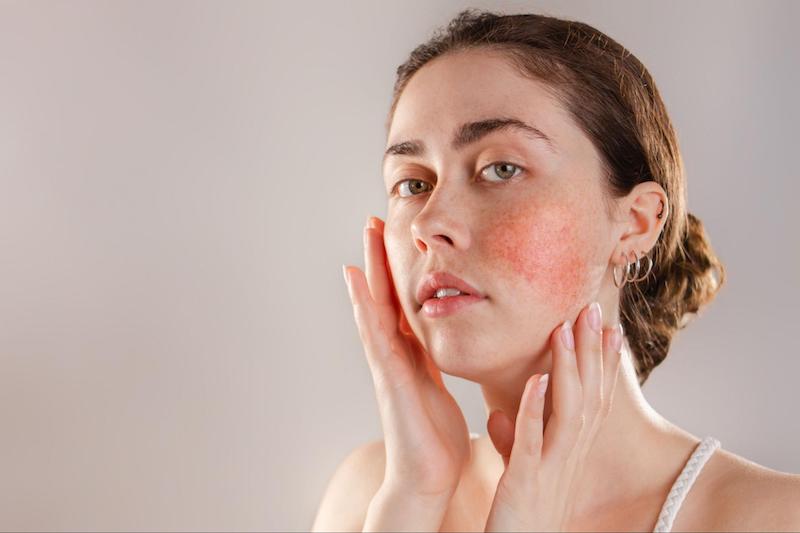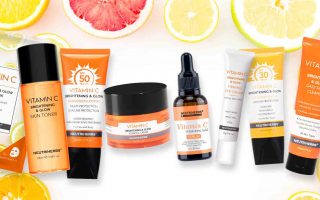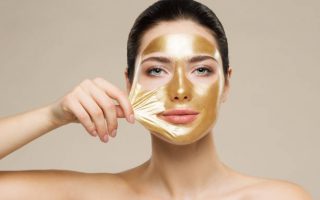Sometimes our skin goes haywire, itches, flakes, and reddens – frustrating. Why is that, and how can we soothe irritated skin?
Redness, couperose, itchy skin, scaly skin, pimples, dry skin – the list of skin problems is extended. Being sensitive is very much in vogue – viewed from a purely superficial point of view. Almost half of women say they have Sensitive skin, and the trend is rising. A few questions remain unanswered:
What does sensitive skin mean?
Yesterday the skin was flawless there, and now this. Who reacts so sensitively here – us or our skin? There are no medically defined parameters for the condition’s sensitive skin. It’s very different from what people mean by that. In most cases, this means a certain unpredictability: the skin reacts irritated for unknown reasons, becomes red, dry, tight, flaky, gets pimples on the face, it often doesn’t like new products or the old ones suddenly no longer.
Once irritated, the skin cannot regain its balance on its own. And with age, the skin tends to become even more sensitive, and it becomes thinner, produces less collagen, and the vessels become more fragile. The protective coat that protects the skin from irritation and environmental influences become weaker, moisture is lost more quickly, and it can no longer defend itself against harmful effects as well. And when cell damage occurs due to long-term exposure to the Sun, it lacks the necessary strength.
Is my skin just sensitive, or is it already allergic?
Sensitivities often pass just like that—so there is no need to panic. According to estimates, around 20 to 30 million people in Germany suffer from allergies. The biggest disruptors are perfumes, followed by nickel. So what to do if there’s a fire?
You should consult a doctor for any redness and flaking that has not disappeared after a week of moisturising care. There they try to find out the cause with swabs, examination of the skin scales and allergological tests – a real detective work. It is essential to bring any cosmetics with you that could be the culprit: make-up products, care products, cleaning products, hand cream and nail polish. But there is an easier way: Recently, there has been a way of using biotechnology to detect the antibodies in the blood that are responsible for allergies. The “Immuno Solid Phase Allergen Chip ” is prepared with 103 allergens that may or may not react in contact with blood serum and thus show what triggers the allergy.
What should you pay attention to when caring for sensitive skin?
There is a great desire to do something good for our skin, to pamper it. Especially when it seems to be missing something, but this is exactly when minimalism is the order of the day for products. Cosmetics for sensitive skin should, therefore, only contain a minimum and highly compatible ingredients to reduce the potential for irritation.”
A good clue is the label “hypoallergenic” on the packaging. Products marked in this way do without alcohol, critical preservatives, fragrances and dyes, the active substance carrier PEG – and thus many things that could irritate the skin even more. Glycerine – which is contained in almost every cream anyway – and urea are suitable for making the skin moist and supple. However, with one restriction: The active ingredient urea may only be used if the skin surface is intact. Otherwise, it can aggravate the condition. In the case of neurodermatitis on the face, urea concentrations of a maximum of 10%Urea supplement are used as it can stop the itching more effectively.
Incidentally, it makes little sense to buy a “scent-neutral” cream: It is so cleverly perfumed that all the smells cancel each other out. The same applies to certified natural cosmetics: Nature is not automatically good. Deadly nightshade is also wild but poisonous. Marigold, arnica, propolis, chamomile, fennel herbs, evening primrose oil, wool wax and milking grease, in particular, have a high potential for irritation.
And beware: the T-zone usually remains(forehead, nose, chin), is spared from irritation and is more ordinarily moist to oily. If you now use rich, moisturising creams all over your face to treat irritation, a film is created in this area of the skin, under which bacteria and fungi have it nice and warm and moist and can multiply optimally – and then you have the following problem: the skin becomes inflamed and gets pimples. Zinc paste is therefore recommended for acute inflammation. Another good home remedy is white clay:Two heaping tablespoons dissolved in a tub make a soothing bath.
Which ingredients in the care soothe sensitive skin?
Proven sedatives are betulin – an extract obtained from the non-allergenic part of the birch. It has been proven to have an anti-inflammatory, antibacterial and wound-healing effect. It also replaces conventional emulsifiers.
Thermal water – the classic since the 17th century has passed all modern scientific tests and is given the title of being particularly valuable. Thermal water contains many minerals and traces elements, so it soothes and strengthens the Skincare.
Liquorice root extract – has an anti-inflammatory, antioxidant and skin-soothing effect.
Probiotic Face Cream – The hype surrounding probiotic cosmetics has broken out. Probiotic care balm promises to stabilise the skin barrier and significantly increase skin moisture. Long-term studies are still pending, but neurodermatitis patients report positive things.
Neurosensins and PEA – substances similar to endogenous substance that inhibits the release of inflammatory messengers. The active ingredient, therefore, has a skin-soothing effect, and redness and itching are reduced.
Dexpanthenol – promotes the formation of new skin cells and thus contributes to regeneration. It relieves itching, promotes wound healing and is anti-inflammatory.
ProFilaggrin – algae extract that strengthens the skin’s barrier function.
Micro silver – has an antibacterial effect and is particularly recommended for a daily care of neurodermatitis.



